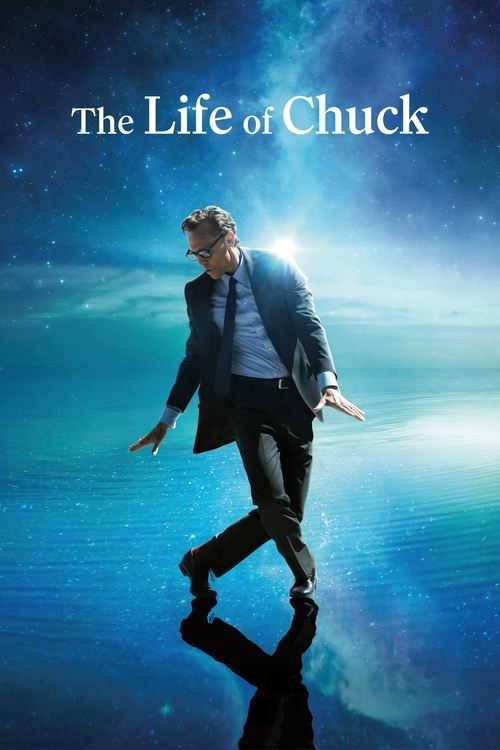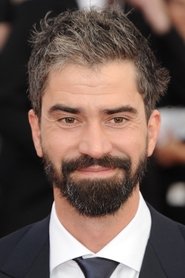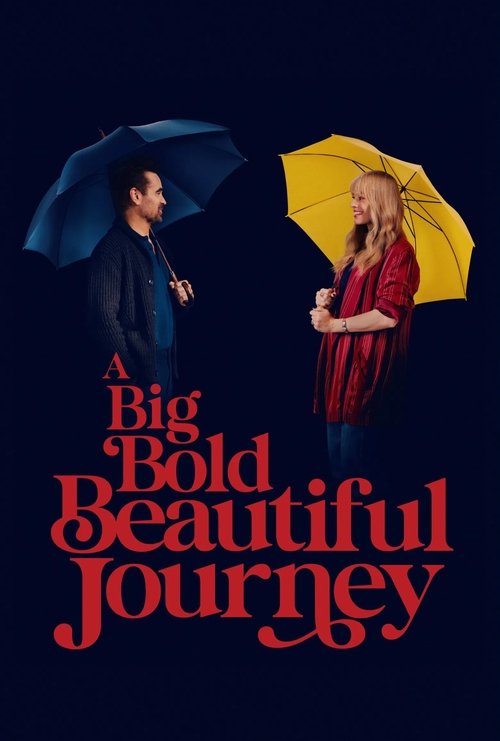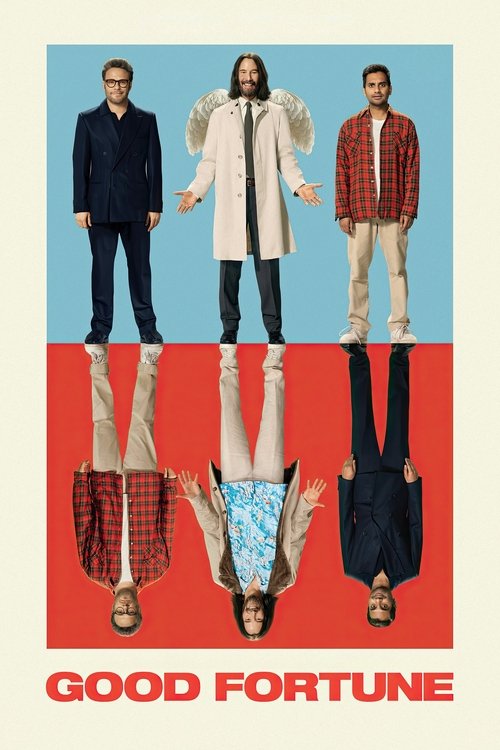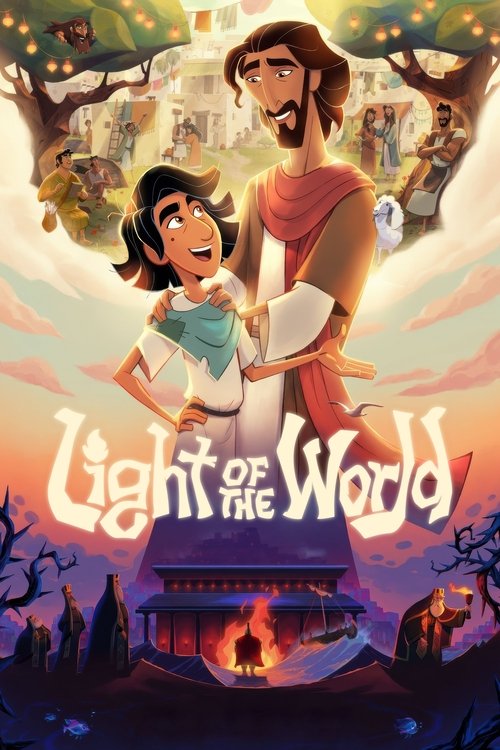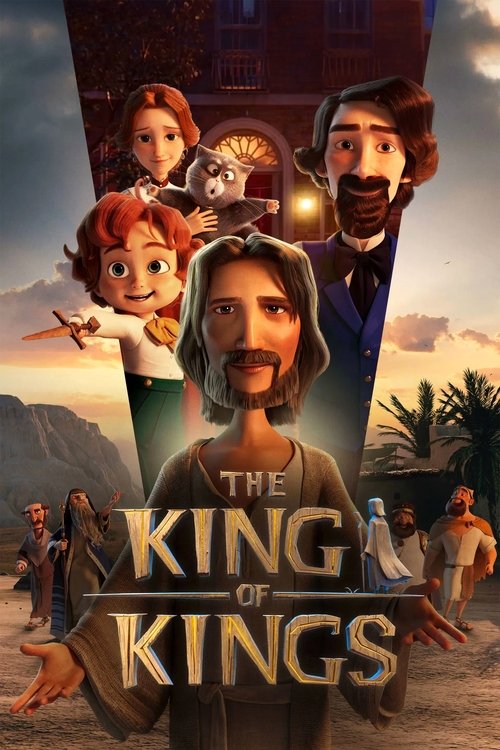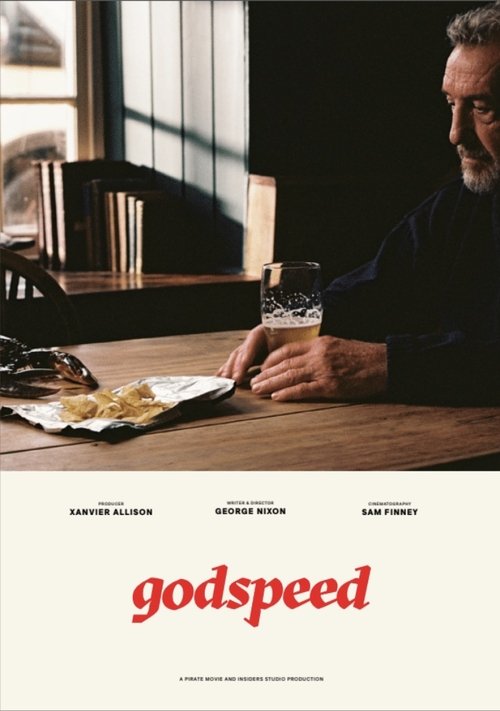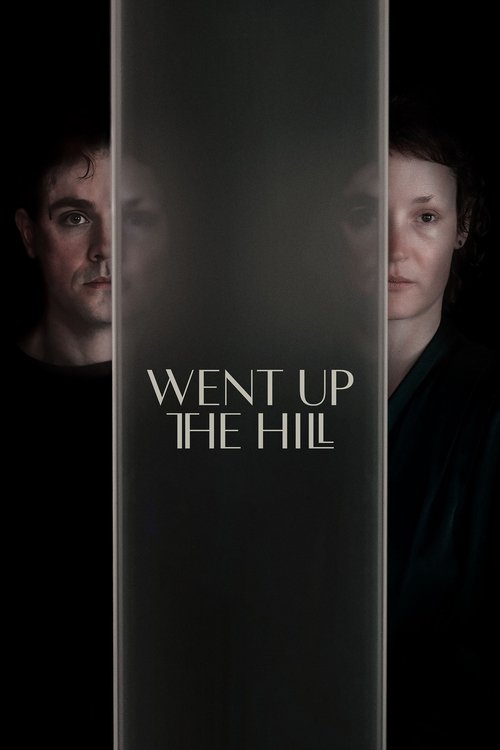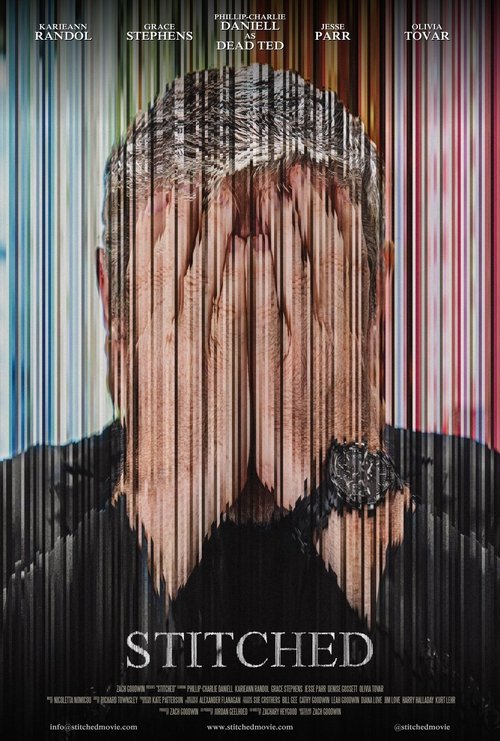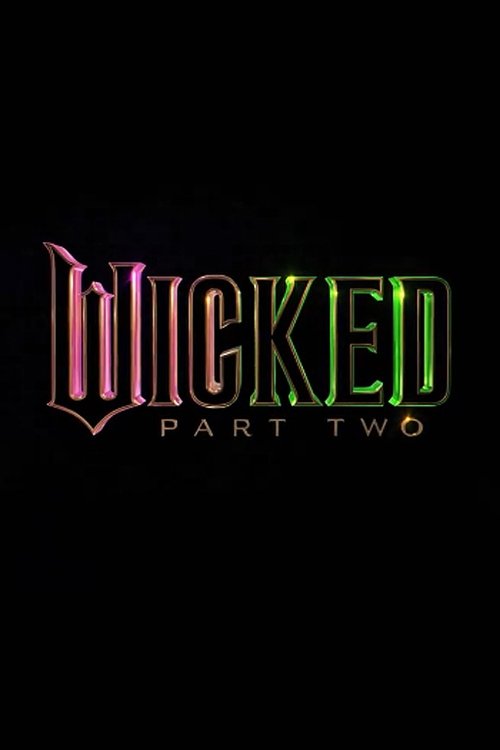
Ask Your Own Question
What is the plot?
The Life of Chuck (2025) unfolds as a triptych narrative told in reverse chronological order, tracing the life of Charles "Chuck" Krantz from his death coinciding with the end of the universe back to his childhood, revealing the profound moments that define his existence.
The film opens with Act Three, titled "Thanks Chuck," set in a world unraveling at the seams. In a classroom, Marty Anderson, a teacher, and his students witness news alerts about a massive earthquake, soon followed by the complete disappearance of the internet, plunging society into disconnection. As chaos spreads globally, bizarre advertisements appear everywhere, all expressing gratitude to Chuck for "39 great years." Marty's ex-wife, Felicia Gordon, a nurse, overhears a radio announcement echoing the same message. The two reconnect over a phone call, contemplating whether these events signal the apocalypse. Meanwhile, a sinkhole opens nearby, and the sky itself bears the message "Thanks Chuck" traced by an airplane. Felicia and her colleague Bri observe an eerie number of empty hospital beds, though monitors indicate patients remain alive. Marty, unable to reach Felicia due to failing service, encounters Sam Yarbrough, an undertaker who philosophizes about time's nature and humanity's reckoning. As darkness falls, Marty meets a young girl named Iris struggling to skate amid blacked-out streetlights. They proceed to Felicia's home, where they brace for the impending end. The scene shifts to Chuck, lying in a hospital bed beside his wife Virginia "Ginny" Krantz and their son Brian, reaffirming their love as the world fades to black.
Act Two, "Buskers Forever," rewinds six months to a vibrant day in Chuck's life. Narrated by Nick Offerman, the story introduces Taylor Frank, a street drummer who plays in the town square for spare change. At the same time, Janice Halliday copes with a recent breakup via text message. Chuck, unaware of his looming fate--a brain tumor that will claim his life in half a year--passes by Taylor's performance. Captivated, he sets down his suitcase and begins to dance, drawing a crowd. He invites Janice to join, and despite initial hesitation, she embraces the moment, their dance delighting onlookers. Afterward, Taylor offers to share her earnings, but Chuck and Janice decline. They part ways, with Chuck reflecting on the inexplicable joy he felt dancing, unaware that soon he will lose his ability to walk, speak, and even remember his wife's name.
The narrative's first act, "I Contain Multitudes," delves into Chuck's childhood and adolescence. After losing his parents and unborn sister in a tragic car accident, young Chuck moves in with his grandparents, Albie and Sarah. Albie, an accountant, succumbs to alcoholism, while Sarah nurtures Chuck's love for dance and classic musicals. Albie forbids Chuck from entering a locked room in their house, claiming it harbors dark secrets and premonitions of death. Chuck's teacher, Ms. Richards, introduces him to the concept of "I contain multitudes," explaining that people embody many facets within themselves. Chuck joins a dance program called Twirlers & Spinners, where he excels and partners frequently with Cat McCoy, an older girl he admires. At a school dance, Chuck overcomes his fears and dances with Cat, earning applause and even a kiss, though she clarifies their relationship is platonic. Chuck later reveals a scar on his hand, admitting he lied about its origin out of embarrassment. After Sarah's death from a supermarket fall, Albie's alcoholism worsens, culminating in his death from a heart attack during Chuck's teenage years. Left alone, Chuck finally enters the forbidden room, where he confronts a vision of his adult self on his deathbed. This revelation inspires him to live fully, embracing the multitudes within him.
Throughout the film, Chuck's life is framed by the impending end of his personal universe, which parallels the literal collapse of the world in Act Three. The apocalyptic events--disappearance of the internet, natural disasters, and societal breakdown--are intertwined with Chuck's death, suggesting that his consciousness contains an entire universe whose end coincides with his passing. The film's structure, moving backward through time, reveals how Chuck's experiences, relationships, and passions culminate in the man remembered and celebrated as the world ends.
Character deaths are primarily centered on Chuck's family tragedy: his parents and unborn sister perish in a car accident early in his life, and his grandparents pass away during his youth--Sarah from an accident and Albie from a heart attack. Chuck himself dies from a brain tumor at age 39, lying peacefully beside his wife and son. No other character deaths or violent confrontations occur, as the film focuses on personal loss, memory, and the passage of time rather than external conflict or political intrigue.
There are no major battles, arena sequences, or political machinations in the narrative. Instead, the film's tension arises from the emotional and existential stakes of Chuck's life and death, the mysterious apocalyptic phenomena, and the symbolic presence of the locked room and visions of mortality.
Plot twists include the revelation that the locked room in Chuck's grandparents' house contains visions of death, including Chuck's own future demise, and the understanding that the world's end is linked to Chuck's passing. The advertisements thanking Chuck for "39 great years" become a haunting motif, underscoring his significance to the universe's existence. The film's reverse chronology itself serves as a narrative device that gradually unveils the meaning behind the apocalyptic events and Chuck's life story.
Character relationships are deeply explored, particularly Chuck's bonds with his grandparents, his wife Ginny, his son Brian, and figures like Marty and Felicia, who represent connections in his adult life. Chuck's motivations evolve from coping with loss and fear to embracing joy, dance, and the fullness of life despite his impending death. His development is marked by a growing acceptance of his multitudes--the many facets of his identity and experience.
The film concludes with Chuck's death in the hospital, surrounded by loved ones, as the world simultaneously collapses. Marty and Felicia reconcile in the face of the apocalypse, symbolizing human connection amid chaos. The final scenes emphasize love, acceptance, and the enduring impact of a life well-lived, even as the universe fades away.
This comprehensive narrative weaves together the intimate and cosmic, portraying Chuck's life as a microcosm of existence itself, with his death marking both an end and a celebration of the multitudes contained within a single human life.
What is the ending?
The ending of The Life of Chuck (2025) shows the world collapsing as Chuck Krantz dies at age 39, coinciding with the end of the universe. The film closes with a vision from Chuck's childhood where he understands that his life and consciousness contain an entire universe, and his death means the end of that universe.
Expanded narrative of the ending scene by scene:
The final act, presented first in the film's reverse chronological order, is titled "The Collapse." The world is visibly ending: the internet has failed, California is sinking into the ocean, and massive sinkholes open suddenly. Amid this apocalyptic chaos, a strange advertising campaign appears everywhere, featuring Chuck's smiling face with the message "39 GREAT YEARS! THANKS, CHUCK!" This haunting ubiquity of Chuck's image puzzles Marty Anderson, a schoolteacher who watches the world unravel. The ads symbolize Chuck's life and its significance as the universe itself fades.
As the world deteriorates, Chuck is shown in a hospital bed, dying at age 39. His death is not just personal but cosmic--the collapse of his consciousness means the collapse of the universe contained within him. Marty, the schoolteacher, is a witness to this unraveling reality, underscoring the connection between individual life and the cosmos.
The narrative then shifts backward to Chuck in his prime, walking down a city street. In a moment of pure joy and spontaneity, Chuck dances with a street busker, captivating passersby. This scene contrasts the bleakness of the apocalypse with a vibrant snapshot of Chuck's vitality and humanity. It highlights the life he lived before the end, full of small, beautiful moments.
Finally, the story moves further back to Chuck's childhood. Raised by his grandparents in a house rumored to be haunted, young Chuck is fearful of the locked cupola room. After his grandfather's death, Chuck confronts his fear and enters the cupola. Inside, he experiences a profound vision: he sees his entire future life laid out before him, culminating in his own death at 39. He realizes the haunting is not a ghost but the echo of his own life and consciousness filling the house and, by extension, the universe.
At the end, Chuck's fate is sealed--his death marks the end of his personal universe. His grandparents, especially his grandfather Albie and grandmother Bubbie, are part of his formative years but do not appear in the final moments. Marty Anderson, the schoolteacher, remains as a witness to the collapse but is not a participant in Chuck's final fate. The film closes on the idea that each person's consciousness contains a universe, and Chuck's life and death symbolize the birth and death of that universe.
Who dies?
Yes, characters do die in The Life of Chuck (2025), most notably Chuck Krantz himself. Chuck dies at the age of 39 from an untreatable brain tumor. The film reveals that during a moment of spontaneous dancing, Chuck experiences a headache and dizziness, which later leads to the diagnosis of the brain tumor. Despite treatment and the support of his wife Ginny and their teenage son Brian, Chuck gradually loses his senses and ultimately dies in a hospital bed. His death is a central event around which the film's narrative and symbolic elements revolve.
Chuck's grandparents also die before his childhood scenes, as indicated by his return to the locked cupola after their passing. The film suggests that Chuck's grandfather had a vision of death, and Chuck himself experiences a vision of his future death in the cupola during childhood.
Other deaths are mentioned but less central: Chuck's parents died in a car accident, and there is a mention of someone dying from a heart attack, though these are not focal points of the story.
The film uses Chuck's death and the apocalyptic backdrop as metaphors for consciousness and the human experience, with the world's collapse paralleling Chuck's fading life. The mysterious advertising campaign thanking Chuck for "39 GREAT YEARS" symbolizes the impact of his life and the supportive messages from his wife during his final days.
In summary:
- Chuck Krantz: Dies at 39 from a brain tumor, after symptoms begin during a dance; dies in hospital surrounded by family.
- Chuck's grandparents: Deceased before his childhood scenes; their deaths influence Chuck's early fears and visions.
- Chuck's parents: Died in a car accident (mentioned background).
- Unspecified heart attack victim: Mentioned but not detailed.
The film's deaths are intertwined with its themes of life, consciousness, and mortality rather than straightforward plot events.
Is there a post-credit scene?
The movie The Life of Chuck (2025) does not have a post-credit scene. According to a viewer report, there was nothing extra during or after the end credits, despite some other users mentioning a charming extra that begins with or shortly after the credits. However, in the viewing referenced, no such scene was present. The credits run for about 5 minutes, but no additional scenes or post-credit content appear.
Therefore, you can expect no post-credit scene in The Life of Chuck.
What is the significance of the cupola in Chuck's childhood home and what does Chuck discover there?
The cupola in Chuck's childhood home is a locked room that his grandfather forbids him to enter, claiming the floor is rotted and that it is 'full of ghosts.' When Chuck finally enters as a teenager, he finds the room empty but experiences a profound vision of his future self dying in a hospital bed at age 39. This vision reveals that the haunting is not supernatural but an echo of his own life and consciousness, symbolizing his awareness of mortality and the passage of time.
How does Chuck's relationship with his grandparents influence his character and story?
Chuck is raised by his grandparents after losing his parents. His grandfather Albie, an accountant, wants Chuck to follow in his footsteps, while his grandmother Bubbie encourages his love of dancing and classic musicals. This dynamic shapes Chuck's internal conflict between a conventional, narrow life and his passion for dance and joy. The grandparents also contribute to the mystery of the cupola and the themes of memory and legacy in Chuck's life.
What role does dance play in the film, particularly in Chuck's life?
Dance is a central motif representing joy, connection, and vitality in Chuck's life. There are two key dance sequences: one where adult Chuck spontaneously dances with a street busker, captivating onlookers, and another where young Chuck gains confidence at a middle school dance. These moments are portrayed as expressions of self-love and human connection, serving as emotional and narrative highlights that contrast with the film's darker apocalyptic elements.
Who is Marty Anderson and what is his significance in the story?
Marty Anderson is a schoolteacher who witnesses the world's collapse in the film's apocalyptic third act. He becomes obsessed with a mysterious advertising campaign featuring Chuck's face and the message '39 GREAT YEARS THANKS, CHUCK!' Marty serves as a narrative observer of the world's decay and the symbolic importance of Chuck's life during the collapse, linking the personal story of Chuck to the broader cosmic events.
Why does Chuck choose to become an accountant instead of pursuing dance, despite his passion?
Although Chuck has a passion for dance, he ultimately chooses a more conventional and narrow life as an accountant, following his grandfather's path. This decision is bittersweet, especially given his knowledge of his limited lifespan. The film suggests that Chuck's choice reflects a desire to help others and find meaning in a practical way, even if it means sacrificing his artistic dreams. The reasons behind this choice are left somewhat open to interpretation and emotional processing.
Is this family friendly?
The movie The Life of Chuck (2025) is rated R and is generally considered suitable for teens 14 and older rather than young children due to mature content. It contains strong language including multiple F-words, depictions of violence such as a deadly car accident and scenes suggesting natural disasters and destruction of cities. There are also themes of death and dying, including a character dying from a brain tumor, and discussions about the end of the universe and loss of loved ones.
Other potentially upsetting or sensitive aspects include alcohol use shown in several scenes, with characters drinking wine and whiskey, and some smoking. Emotional intensity and existential themes about life and death may also be heavy for sensitive viewers. Despite these elements, the film carries an uplifting, life-affirming message about cherishing time and small moments.
In summary, The Life of Chuck is not family-friendly for young children due to language, mature themes, and some violence, but may be appropriate for older teens who can handle its emotional and thematic depth.

